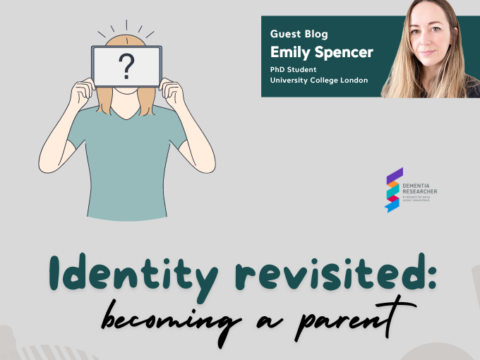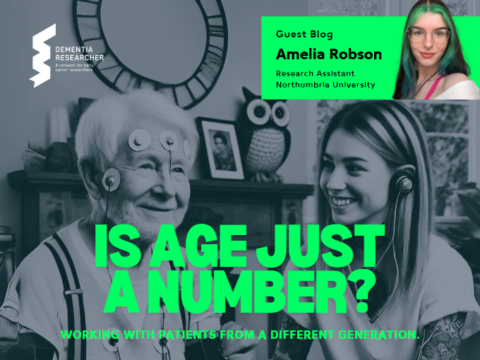I heard an excellent quote on one of my favourite podcasts this week. “It was a failure if you did anything but become a clone of your supervisor….which is ridiculous because your supervisor would spawn 60-100 apprentices but only one replacement….what are those other 99 going to do?”. Jenny Rohn on the Lonely Pipette, in case you’re interested. She was discussing her unusual career path and highlighting the need to discuss a plan B, or even a plan C with her academic juniors so that they felt comfortable with their own career choices. But what if you don’t have anyone as insightful as Jenny? What if your academic mentors are of the old guard? The ‘keep taking the tickets’ guard? How do you go about exploring other options without feeling like a failure, and if you have no good mentors where do you start looking for information?
Let’s start with what you can do.
If you’re listening to this you’re likely a PhD student, an early career researcher or one of my friends who dedicatedly listens to this drivel every time I churn it out. As such you are actually a highly qualified individual. You are likely to not notice this because you are currently working in a place stuffed full of highly qualified individuals so it’s hard to see the wood for the trees. But as an academic with, or about to have, a PhD or a masters you can problem solve and you can multi-task. You can grasp new concepts easily and work with technology. Many of you can code and work with R and python, you might have important people skills from working with clinical cohorts or great organizational skills from running teaching courses. You can take complex concepts and present them in an easily digestible format. You can write and you can present. You are used to having meetings with a variety of different people from industry executives and buildings managers, to reps, professors and undergraduates.
So you do have some skills, irrespective of what you think.
The first thing to do if you’re thinking about a plan B is to present those skills in a meaningful way to the world. Many people will disagree but LinkedIn is a great tool to start with. Start by adjusting your profile so that it helpfully (and briefly) shows the world who you are and what skills you have. Remember, you’re presenting yourself to potential employers outside of academia so unless you want a very specific job in industry don’t write ‘expertise: PCR, high throughput sequencing and Western blots’. Instead, re-phrase it as ‘considerable experience in the field of molecular biology’. Highlight all of those things from the paragraph above that apply to you and make them more approachable. Did you have to juggle several undergrads and a couple of PhDs along with your own work? Then you have ‘management and leadership skills’. Did you write and manage your own grants? Then you have ‘project and budget management skills’. All of these things will make you seem more like a well-rounded individual, and less like a person who sits on their own in a small dark room playing with mouse brains.
We’ve got our new, shiny resumé that makes us sound like a proper grown-up. What do we do with it?
Well first off just stick it out on all the platforms and see if anyone finds you. It’s very much a long shot but I’ve been called by recruiters about fairly random jobs and I’ve got colleagues I’ve met who now work in really good places who were head-hunted via places like LinkedIn. So it’s a good place to start, especially if you feel nervous about fully jumping ship.
This approach will work well if you’re tentatively dipping your toe into the possibility of maybe, at some point, leaving. But what if you are in the middle of your first post-doc and you see no prospects? What do you do if you’re enjoying it but you do want to make a plan B, just in case?
Start by sticking to the maxim about doing what you’re good at, not necessarily what you love. It’s great to have passion and drive but realistically, it’s not always going to pay the bills so you need to find something that does. Fortunately, you’re in an industry right now where you can explore a lot of different options. You can write a lot or present a lot, you can learn new skills and take on junior colleagues. Maybe you find you love the writing but not the science, so that gives you a hint about what you might like to do. Maybe you find you love the science but hate the people management, again, more grist for the job search mill.
This is the point where you need to take advantage of the internet and it’s many and varied offerings. Find companies that do the things you’re good at, and reach out to them. Some companies will offer internships which, if you’re a PhD student, you might be able to fit into your studies as a small secondment. But others will often be happy for you to just call and talk to their HR team. Some will have a recruitment manager who will be able to discuss things like salaries and hours with you, as well as prospects for career advancement. But if you really want to know what a company is like try and find someone you know who works there and ask them. This is where things like LinkedIn come in handy. You might not know anyone directly who works there but it may point out others from your institution who work there, or it may point out that a second connection (friend of a friend) works there. What this does is give you an in for the opening of your cold email. ‘Hi, I see from LinkedIn that you know my friend Jeff, he suggested I email you to ask you what it’s like at your company’. Much like in academia, solid reviews of where you’re thinking of going to spend quite a lot of your life are really helpful before you dive in.
At the same time as reaching out to companies, approach your local careers service. Whilst these places have not traditionally had the best rep when it comes to helping people with ‘alt-ac’ careers in mind, they are definitely getting better. They often have activities you can do to help you find your strengths if you don’t think you have any. They’ll help you re-organize your CV if you can’t find examples and they might even be able to point you in the direction of local companies that fit your skillset. They might also be aware of local hiring trends – ‘lots of people with your background went to this company, you might want to check it out’.
Once you have your plan B in place it’s time for you to sit and reflect a little. To think about what you really want from life and whether academia is delivering it for you. And to realise that, despite what the old guard think, leaving this career path is not a failure it’s a choice. You’re not obliged to stay somewhere that is making you unhappy and undervaluing you just because someone senior thinks you should because it’s what they did. Remember, if you are unhappy 90% of the time now, even being unhappy half the time in a new job is still a massive improvement so you don’t have a great deal to lose, do you?
And as always, I’ll recommend you go and listen to the Jenny Rohn – Lonely Pipette episode, but also check out our own dementia researcher blogger Kam’s post. Both of them discuss leaving academia for a tangential career and then coming back and making a success of it. Jenny did it twice and says that she believes there is a shift towards academia valuing the sorts of skills she acquired working outside of the education sector.
So if your new years resolution was to make plan B but you didn’t know where to start, hopefully I’ve given you some inspiration. Good luck!

Dr Yvonne Couch
Author
Dr Yvonne Couch is an Alzheimer’s Research UK Fellow at the University of Oxford. Yvonne studies the role of extracellular vesicles and their role in changing the function of the vasculature after stroke, aiming to discover why the prevalence of dementia after stroke is three times higher than the average. It is her passion for problem solving and love of science that drives her, in advancing our knowledge of disease. Yvonne shares her opinions, talks about science and explores different careers topics in her monthly blogs – she does a great job of narrating too.

 Print This Post
Print This Post




